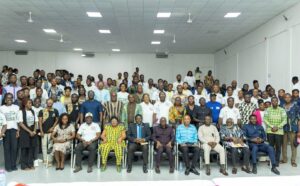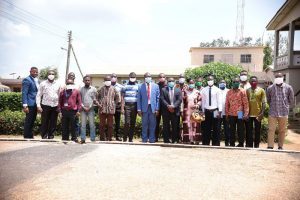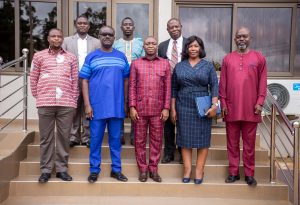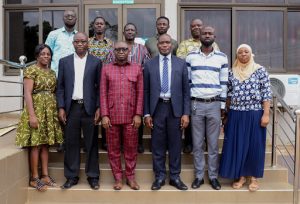The University of Energy and Natural Resources (UENR), Sunyani, from Tuesday, May 10 to 13, 2022, led Ghana to host the 5th United Nations’ International Conference on the Use of Space Technology for Water Resources Management at Alisa Hotel, Accra-Ghana.
The Minister of Education, Hon. Dr. Yaw Osei Adutwum and the Acting Chief Director of The Ministry of Foreign Affairs and Regional Integration, Ambassador Ramses Joseph Cleland joined the team to open the fifth international Conference which focused on applications of space technology for water. The Conference was organized by the United Nations Office for Outer Space Affairs (UNOOSA), the Government of Ghana being the second African country after Morocco, with the financial assistance of the Prince Sultan Bin Abdulaziz International Prize for Water (PSIPW) and the Inter-Islamic Network on Space Sciences and Technology (ISNET).
Giving the welcome address at the opening session, the Vice-Chancellor of the University of Energy and Natural Resources, Prof. Elvis Asare-Bediako recounted that Ghana’s interest in astronomy took seed in her early days after political independence, which birthed the Space Observation Station, an initiative by the Ghana Atomic Energy Commission. According to him, the Ghana Space Science and Technology Institute was only implemented to augment issues on space science, space exploration, astronomy, and technology in the country.
He said UENR has been a key player in research on space technology and water resource management. “Albeit just a decade old this year, the University via its Earth Observation and Research Innovation Centre (EORIC) established in 2015 has had extensive collaborations with international agencies including the National Aeronautics and Space Administration (NASA). UENR is now a hub for satellite receivers, employed to predict the weather in the Bono, Bono East and Ahafo Regions”, he added. The Vice-Chancellor also mentioned that satellites are being used to monitor fire hazards across the West African sub-region as well as to study water resources and their levels of pollution, depletion, history of migration paths and potential for damming among other extensive economic benefits of water resources.
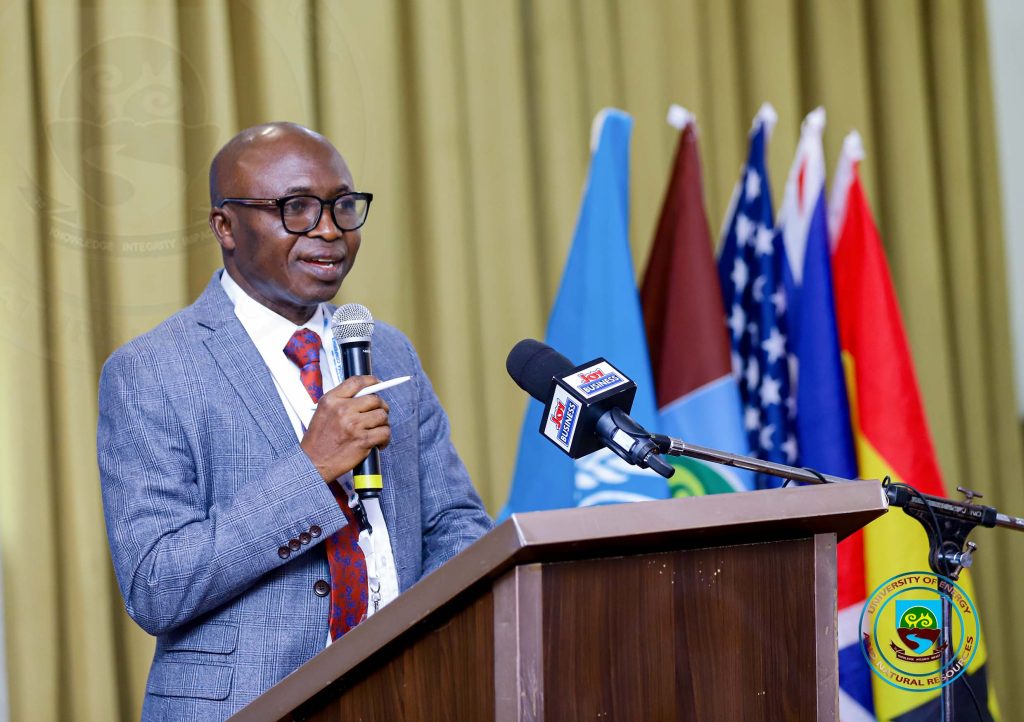
In his keynote address, the Minister of Education, Dr. Yaw Osei Adutwum lauded the University of Energy and Natural Resources (UENR), Sunyani for spearheading the hosting of the conference on behalf of the Government of Ghana. To achieve sustainable development in the sciences, the Minister called on the African leaders and academic institutions to think of how to improve Science, Technology, Engineering and Mathematics (STEM) education in Africa to raise the next generation of experts and researchers, who would manage and build spacecraft to monitor water, weather, the environment for sustainable water resources, improve agriculture and mining, among others. He, therefore, charged universities in Ghana to reach out to High Schools in the country to build their interest and capacity to study science-related programmes.
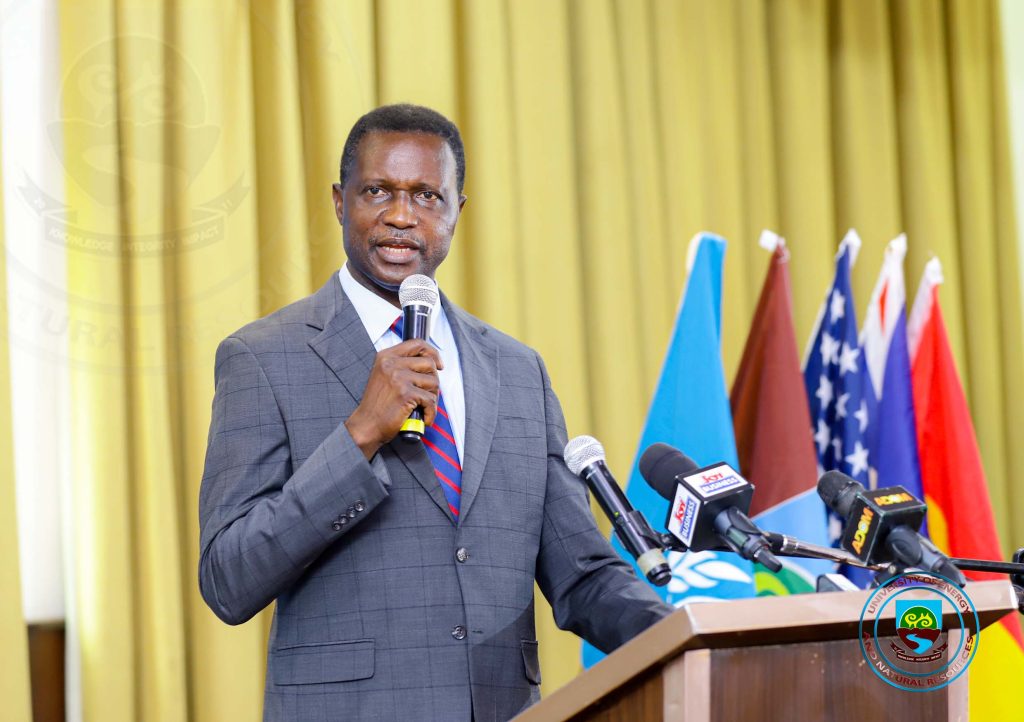
The Acting Dean of the International Relations Office-UENR, Prof. Amos T. Kabo-bah who coordinated the Conference for the University in a statement envisioned that the conference would add to the country’s quest to improve Science, Technology, Engineering, and Mathematics education and nurture young professionals in the field of space technology for water resources who would inherit foundations laid by the current generation for sustainable development globally.
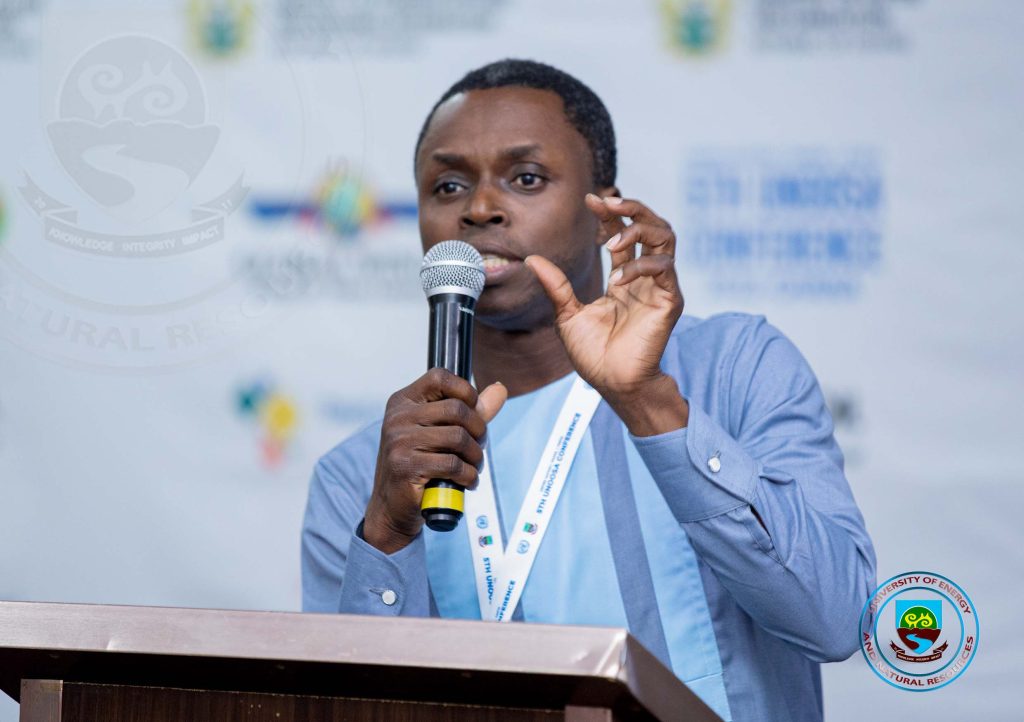
The Conference brought together about 800 industry captains, researchers, academic institutions, the government institutions, some Senior High Schools, as well as stakeholders in space, data and water related-issues who participated in person and online from 87 countries worldwide to discuss selected abstracts and themes on space-based technology and data for managing water-related extremes such as floods, drought and health. At the end of the 4-days conference, it was established from the discussions that the availability of freshwater in parts of Africa is expected in the decades to come. However, there is no established link between researchers and industries, and quantifying how much water Africa has stored in its lakes, rivers, and reservoirs remains a challenge. To this end, recommendations evolved from the Conference that researchers should furnish the necessary organizations with a proposed public policy based on their findings to assimilate the local government in solving the problems found.
View more photos

